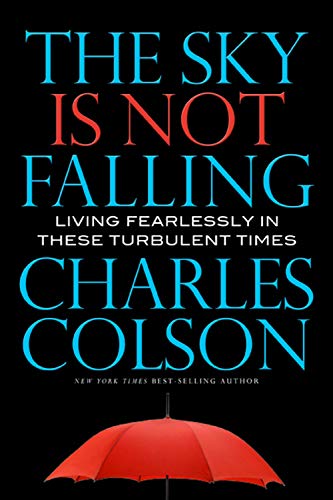Gog & Magog (Part 02)
We continue to explore the fascinating and vital topic of end-times prophecy. One of the major themes is that Israel will be ‘at war’ during the last days. We have a few wars to choose from including Psalm 83, Armageddon and Gog and Magog of Ezekiel 38-39. In Part 01, we learned that this conflict was instigated by an enemy from the ‘north quarter’ and in the ‘latter days.’ The identity of Gog has traditionally been Russia but another strong contender is modern-day Turkey.
To read Part 01, click here:
http://majdali.blogspot.com/2024/02/israel-at-war-prophecy-fulfilled-gog.html
Other major points about this prophecy include (all references are from Ezekiel):
Israel the People shall be living in the land of Israel at the time of the invasion: After many days thou shalt be visited: in the latter years thou shalt come into the land that is brought back from the sword, and is gathered out of many people, against the mountains of Israel … (38:8 KJV). Therefore, son of man, prophesy and say unto Gog, Thus saith the Lord GOD; In that day when my people of Israel dwelleth safely, shalt thou not know it? (38:14 KJV). The remarkable thing is that Ezekiel was writing from exile when most of his people no longer lived in the land. In faith, he saw that one day the Israelites would return, not as Israel and Judah but as one nation (see Ezekiel 37). ‘Upon the people that are gathered out of the nations’ (38:12 KJV) shows that this re-gathered Israel will not just return from the Babylonian captivity, but from the global Diaspora it has endured since the time of the destruction of the second temple in AD 70. Today, Jewish migrants to modern Israel come from over one hundred different nations.
The Gog coalition does not invade willingly: ‘I will turn you around, put hooks into your jaws, and lead you out…’ (38:4 NKJV). During the Cold War, the old Soviet Union did not rub its hands with glee in great anticipation of invading Israel. Besides, this tiny nation had the distinction of being one of the top six military powers in the world with an undeclared nuclear arsenal. Israel’s Operation Samson, for example, means that a successful Arab-Iranian invasion of Israel, which effectively means the end of the Jewish state, will be met with lightning-fast nuclear retribution on the major cities of the Middle East (may it never be). What this prophecy says is that God will put a hook in Gog’s jaw and lead him out. You do not put hooks in domestic animals, which could cause great pain and infection. Hooks are reserved for those animals that are slated for destruction. So God will drag Gog into a knee-jerk, spontaneous invasion that will lead to his demise.
The Gog Confederacy is highly armed: ‘And I will turn thee back, and put hooks into thy jaws, and I will bring thee forth, and all thine army, horses and horsemen, all of them clothed with all sorts of armour, even a great company with bucklers and shields, all of them handling swords’ (38:4 KJV). Probably no area of the world is arming more rapidly than Asia: East Asia, South Asia, China, Russia and the Middle East. While other regions are demilitarising, this continent is not. It would not be an exaggeration to call some areas an arsenal.
References to horses could be symbolic but remember that horses can be used in steep and mountainous areas where mechanised forces cannot reach. Horseback warfare occurred even in the twentieth century. In October 1917, the Australian Light Horsemen captured the city of Beersheba from the Ottoman Turks. This was the end of four hundred years of Turkish rule in Palestine and paved the way to the British Mandate (1917-1948). As the name implies, they had this stunning victory on horseback. In any case, the Arab Muslim world and Russia have enjoyed great cooperation for many decades. Israel has no lack of enemies from this part of the world and the possibility of long-term peace is dim. As Joseph de Courcy says, ‘The Arabs do not—and never will—accept Israel’s right to exist.’
The Invasion Force will be as numerous as a cloud that covers the land: ‘You will come up against My people Israel like a cloud, to cover the land’ (38:16 NKJV). Gog, in concert with its allies, will be so numerous as to cause a blackout. Gog will be a massive and well-aimed bowling ball with Israel as the sole pin in the alley.
The allies of Gog might be recent and present-day antagonists of Israel: ‘Persia, Ethiopia, and Libya are with them, all of them with shield and helmet. 6 Gomer and all its troops; the house of Togarmah from the far north and all its troops—many people are with you’ (38:5-6 NKJV). Persia is clearly Iran. Historically known as Persia until 1935, it was kind to the Jews like in the days of Cyrus the Great, or murderously hostile like in the time of Haman in the days of Queen Esther. In the twentieth century during the era of the Shah, there were strong and friendly bilateral ties. However after the establishment of the Islamic Republic of Iran in 1979, Israel obtained a new and major enemy. Ethiopia as ‘Cush’ may also mean Sudan or possibly Eritrea. Libya is Phut, Gomer may mean the people north of the Black Sea, and Beth Togarmah can be in the Caucasus Mountains. Some commentators suggest Turkey could enter into the fray. Turkey, once a secular western-leaning Muslim majority country which until recent years had strong bilateral relations with Israel. Yet its current leadership has caused a major tilt towards Islamism. Add to that the probable future European Union rejection of Turkey’s European Union membership application, would change the balance of power in the Middle East.
What is the purpose of this invasion: ‘To take a spoil, and to take a prey; to turn thine hand upon the desolate places that are now inhabited, and upon the people that are gathered out of the nations, which have gotten cattle and goods, that dwell in the midst of the land. 13 Sheba, and Dedan, and the merchants of Tarshish, with all the young lions thereof, shall say unto thee, Art thou come to take a spoil? hast thou gathered thy company to take a prey? to carry away silver and gold, to take away cattle and goods, to take a great spoil?’ (38:12-13 KJV). What is the motive for this massive and unprovoked invasion? The apparent reason is spoils. What spoils could Israel have? First, it has a technologically advanced market economy, its own hi-tech Silicon Valley, and a large per-capita income. Then ‘livestock and goods’ could refer to its successful agricultural sector. Next, the Dead Sea has forty-five billion tons of sodium, chlorine, sulphur, potassium, calcium, magnesium, and bromide. To top it all up, Israel was considered to be ‘resource-poor’ until recently when some amazing news came: natural gas was discovered off the coast of Israel. According to Israel Today Magazine:
The natural gas field in the Levant Basin (the western Mediterranean) is estimated to hold 122 trillion cubic feet of recoverable natural gas, making it the largest natural gas resource ever found. The area is also believed to contain at least 1.7 billion barrels of recoverable oil.
Israel, as the land bridge to Africa and Eurasia, plus its proximity to Middle Eastern oil fields which contain seventy per cent of the world’s proven oil reserves, could make it a strategic toehold. ‘Sheba and Dedan’ could refer to modern Saudi Arabia, and ‘merchants of Tarshish’ maybe Lebanon, whose forebears, the Phoenicians, were the great ancient maritime people. The text implies that Israel will be in peace (or, at least, security); if so, its resources will no longer be soaked up by the military. Thus, a ‘peaceful Israel’ is a ‘prosperous Israel,’ thus creating more spoils.
To be continued (The third and final part will be in our May edition).
These three articles come from our book At the Door: Key Nations, Last Days and the Coming King, published by Teach All Nations.






